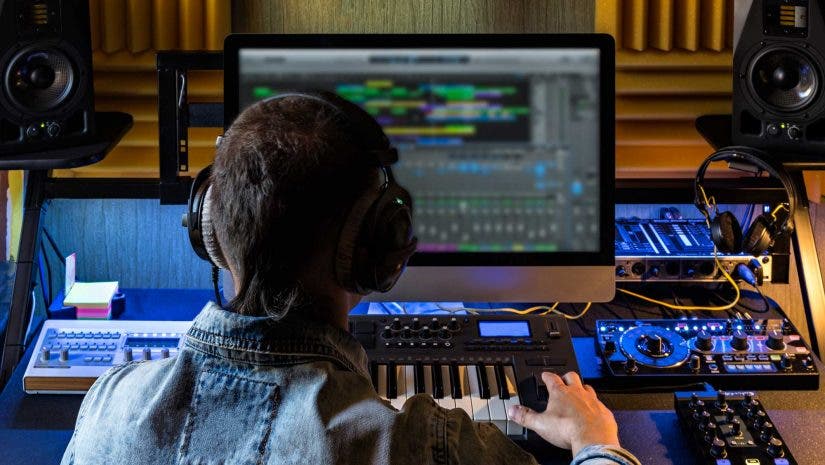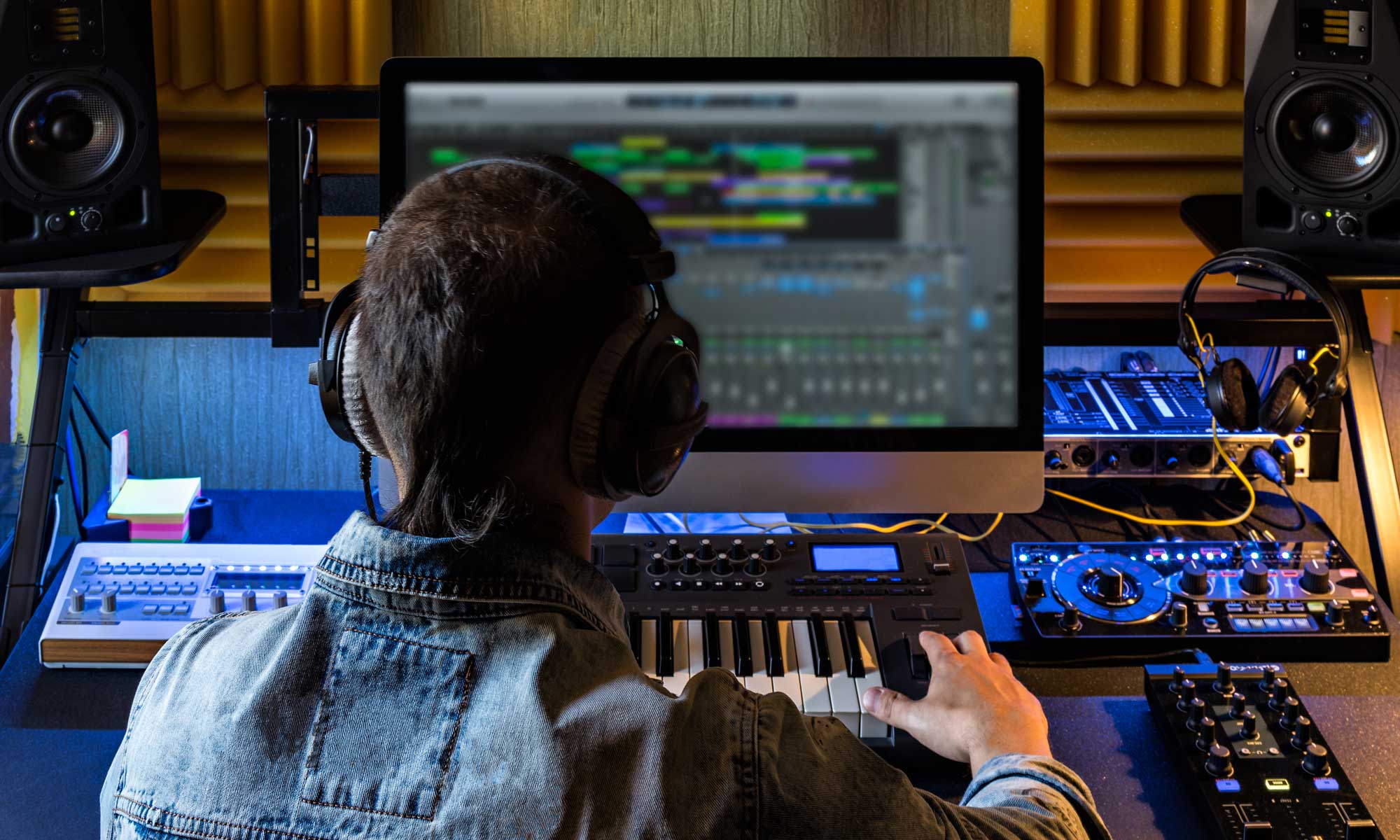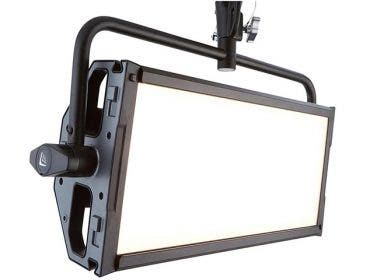If you are aspiring for a career in music production, the best advice will always come from those who are already successful in the field. You’ll be surprised how these music production tips and advice sound pretty general but will ultimately have a positive effect not only on your future habits and workflow but also on your flexibility and confidence as an aspiring music producer.
25 Tips for Music Production
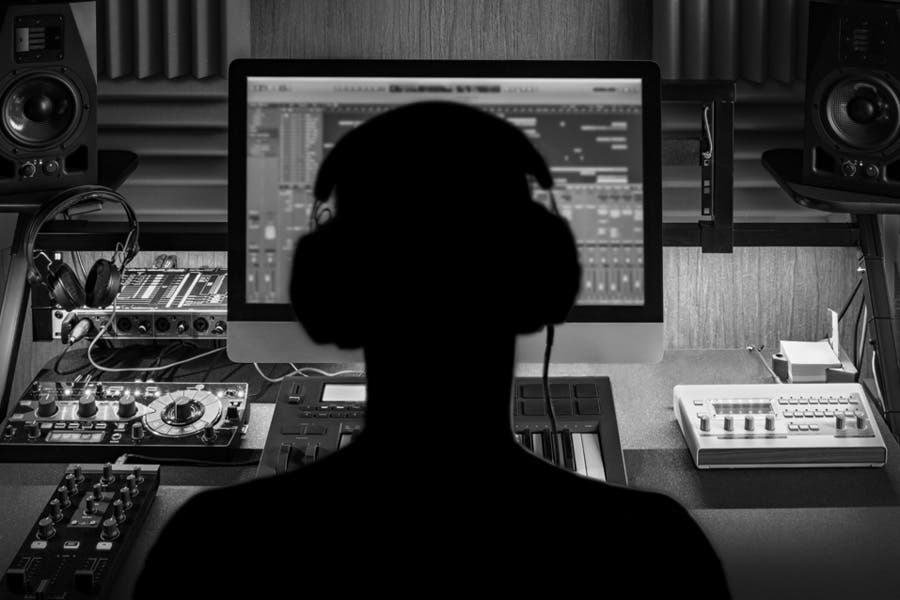
Here are a handful of tips for new music producers out there—all from today’s most popular artists, producers, and DJs. Study them, put them into practice, and allow them to guide you to personal and career success.
Music production begins with a concrete vision
As with every other career that mainly involves creativity, a good starting point is to have a pretty solid vision of what you want the end result to be. You can be as crazy and imaginative as you’d like to be when it comes to making and editing your music, and your vision will likely evolve into something different as you go along, but not having a predetermined concept of your desired output can make you feel lost—and it will probably show once you complete your project.
A comfortable studio space is key for music producers
For creative results, you’ll have to be “in the zone”—mentally and physically. Work where you think you’ll be most comfortable. It doesn’t have to be in a real, professional studio as that can sometimes be intimidating for beginners (and cost a lot in rental hours). If you’re comfortable at home, you can always build your own home recording studio.
Eliminate distractions from your production studio
Your work studio should be a conducive space, so make sure you eliminate all distractions or at least keep them to a minimum. Ideally, a music studio should be soundproofed to keep studio noise in and outside noise out. Switch off televisions, your smartphone, and even your smartwatch (or just take it off). Also, have separate computers for actual studio work and your non-production stuff like emails and social media.
Learn professional music production techniques
Nowadays, learning how to make a track is just as important as being skilled in music production programs. Learn everything you can about your chosen music production software, use it to combine pieces of music together, use reference tracks to improve your mixing, and gain enough experience until you discover the fastest, most efficient ways to achieve your desired results.
Don’t force yourself
When you feel that you’ve hit a creative block and you can’t seem to get it “right,” it might be a good idea to stop and take a breather. Take a short walk outside, read a book, listen to other mixes, or look for sources of inspiration. Do something else for a couple of minutes and come back feeling more refreshed.
Think outside of the box by exploring other music genres
Don’t be afraid to experiment and take inspiration from other genres — this is one of the critical music production tips. Sticking with the same, tried-and-tested sound is the safe way to go, but that’s not how you make stellar music. If you want to create something great, try something different from what is usually expected from your genre. Listen to songs in other genres and think about how you can incorporate the best parts of them into your own music.
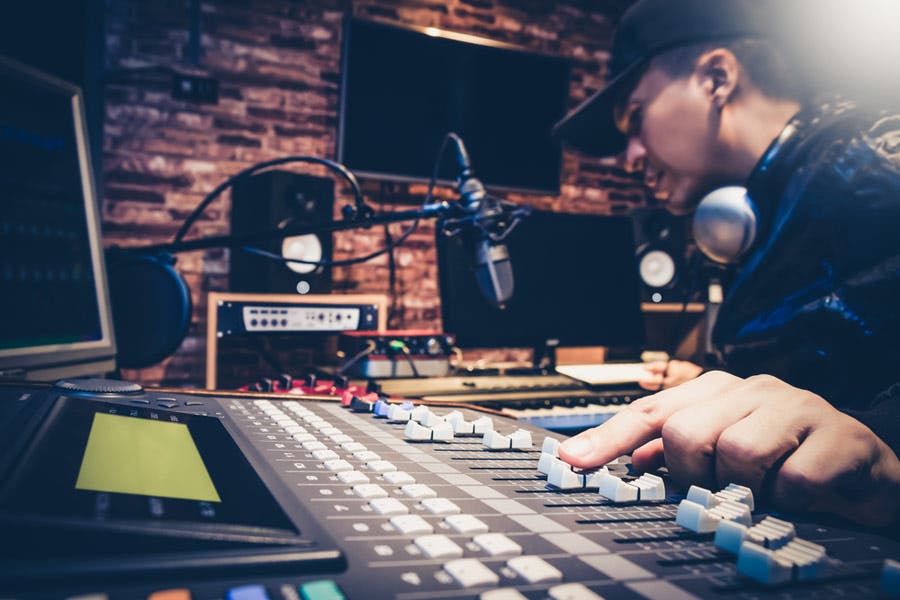
Strive to be original
When producing your own music, it’s normal to want to sound like your favorite artists. However, don’t just mimic the kind of music that you and everybody else already hears. Before starting your work, try to stay away from listening to other people’s music so you can have a much easier time composing your own melodies, lyrics, and mixes.
Review your early mixes to learn from the past
Some professionals advise that you revisit your original mixes if you aren’t quite happy with what you’ve been creating. It’s normal to have hundreds of mixdown versions of a single track, and there will be times that you’ll realize that the best one is still the first—and that’s okay.
Be flexible
Creating all original and unique music is not always the “professional” thing to do. Don’t be afraid to use presets and sample packs if you feel (and hear) that it works best with your track. Keep your mind and options open, and continue looking for multiple sound sources that can improve your track.
Go with the flow
Let your creativity flow and go with it. Whether you’re recording a song, creating melodies, mixing, or mastering tracks, try out different things and see where it takes you. You may just be surprised with the results—in a good way.
Don’t overproduce your tracks
The old saying “less is more” goes for pretty much everything. Considering today’s trend in overloading songs with effects, it’s easy to overdo it the longer you work on a particular track. If it’s not too late, try to minimize and delete unnecessary effects. Keeping it simple isn’t always a bad thing, after all, making it one of our favorite music production tips.
Know when your tracks are complete
When editing and mixing music, another mistake that you should keep yourself from committing is trying too hard to salvage a useless track. If you find it impossible to “finish” it even after taking a creative break, don’t feel too bad about giving up on it and moving on.
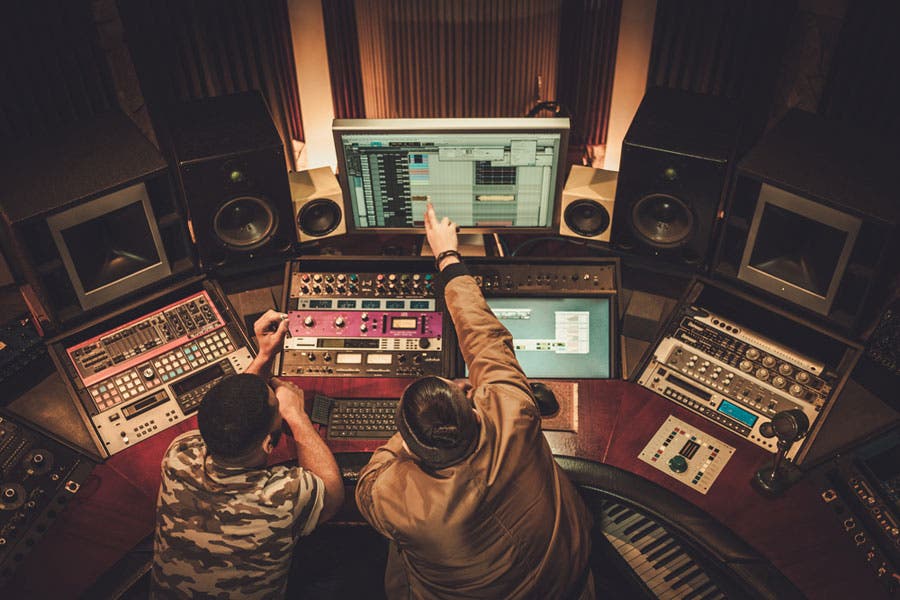
Developing production skills isn’t just about the equipment
Learning how to use EQ, compression, and saturation to improve your music is an important part of successful music production. It may seem like having the flashiest gear and software will help you produce better quality audio, but ultimately, skills matter more than equipment.
Be prepared to invest in your music
Expect to shell out a good amount of your own money to kickstart your career. This is especially true if you’re going to be building your own home recording studio. As you go along, you may be able to get returns on these investments, but be ready to spend most of it again on gear upgrades, promotions (like music videos and adverts), and other expenses.
Make your music with professional grade gear
Speaking of making investments, make sure you spend your money wisely when you purchase essential equipment for music production. These should definitely include high-performance laptops or desktop computers and reliable, studio-quality music hardware—from your main studio speakers and recording microphones down to your mixers and headphones.
Collaborate with artists and other producers
In this competitive field, you’ll need all the help you can get. Collaborate with younger people to keep up with the trends and get fresh new ideas, as well as with older people who can offer you sage advice about the industry. At the very least, you’re bound to learn many new things from working with other people.
Ask for honest feedback
Another benefit of collaborating is you can have somebody else listen to your music—objectively. Take this opportunity to seek honest feedback (if not readily given) from trusted and critical colleagues and mentors who can help you get work done faster, scrap bad ideas sooner, and ultimately grow as a producer.
Don’t let genre labels define your music
There have been many times where producers end up making music that can’t be labeled a specific genre—and that’s perfectly fine. These labels shouldn’t limit you or keep you from creating your own sound, whether it be a mix of electronic music and hip hop or whatever you may feel like making at the moment.

Learn about the different types of microphones
It’s important for any mastering engineer to learn about microphone selection in depth. For example, you’ll need to understand different polar patterns for microphones and how they affect your overall sound design and contribute to creating a good mix.
Work to become an expert in the common types of microphones used in the production process, such as ribbon microphones, condenser microphones, and dynamic microphones. Learning which microphones are best for different types of instruments and vocals can take new producers to the next level.
Once you’ve selected the right microphones for your productions, you can investigate the studio monitors, filters, and other accessories that will help you create the kinds of mixes you’re most interested in.
Record everything
Magic in the studio can happen anytime, and sometimes it takes place during those first few minutes in the studio before you’ve even hit the record button. Save yourself from disappointment by pressing record straight away and see if you can catch something totally random and amazing during those idle, “unscripted” moments.
Trust your ears
When you find yourself stuck in a musical rut while playing with different settings, try listening to your track with your eyes or monitor closed. Don’t rely too much on the visuals on your digital audio editing software. Trust your ears—and your instincts—as you take in your track with a different perspective.
Be driven and disciplined
It’s definitely not easy to break into the music industry. If you want to make music production a career, you need to have the drive and discipline to achieve it. Many have given up along the way, mostly due to disappointment, but if you keep doing what you love and fix your eyes on the prize, you’re likely to go places.
Know your audience
If you’re making music for a specific audience, it’s important to produce music that you know they’ll appreciate—no matter how original or experimental it is. For example, if you’re producing music for clubs, think like a clubgoer and consider what you believe would sound good in clubs, and then work around that.
Take your time
Perfection cannot be rushed, so don’t force yourself to finish a track—especially not just so you can show it off. Give it (and yourself) time to understand a track’s potential, to experiment, and see where editing it could lead you. All this extra time can also help you discern whether a track is truly ready… or not quite yet.
Continue growing
As with every career, remember to keep moving forward and take every opportunity that will help you grow and improve as a producer. Set new goals and challenge yourself to be better and more creative for each new track or record. Sometimes, all we need is a little push to discover what we are capable of.
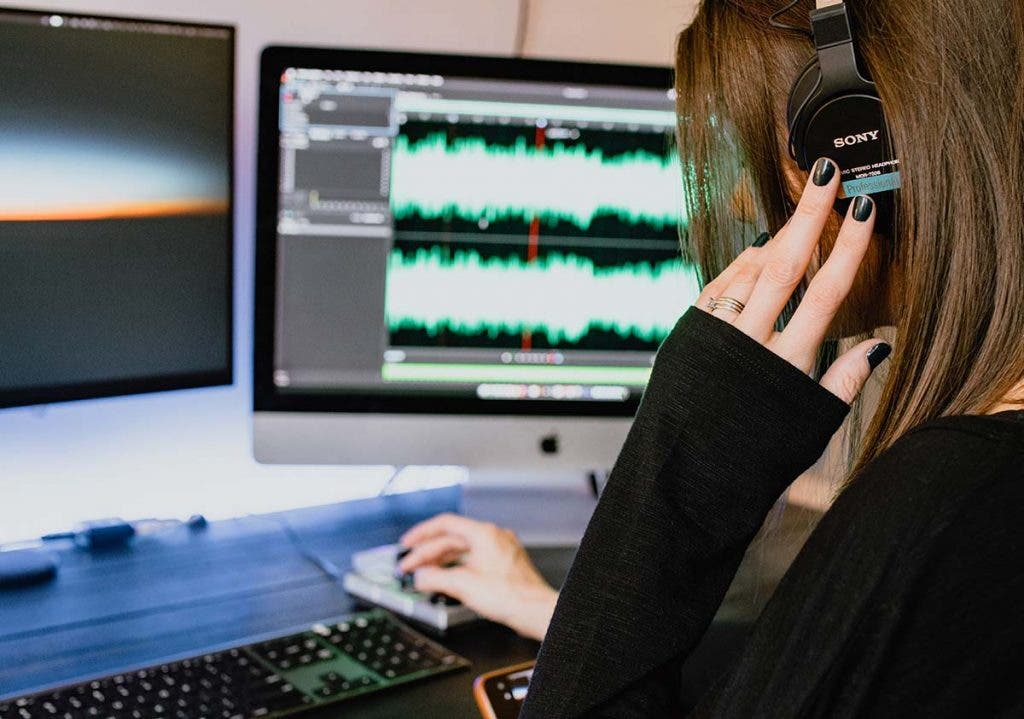
Frequently Asked Questions About Music Production
The music production tips don’t end there. Here, check out some of the most frequently asked questions about this growing career portfolio.
How do you get better at music production?
This answer isn’t popular with everyone: Above all other music production tips, the number one way to get better is to do it a lot. You have to get your hands dirty at least several times a week. Have tons of bad ideas, tons of great ideas, and ultimately improve at your craft. Realistically, there are no shortcuts.
There are plenty of amazing resources out there to illuminate the path to improvement, but you really have to put the work in yourself. Ultimately, don’t be afraid to make mistakes. Your next hit could be right around the corner if you just keep going.
Can you teach yourself music production?
Absolutely! There’s no way to teach creativity, so in essence every music producer is self-taught. You can learn the technical stuff — navigating your DAW, setting up to record audio and MIDI, etc. — either by trial and error, or by picking up music production tips on the web. In fact, you’ll find hundreds of YouTube channels catered towards music production for beginners.
The best way to teach yourself music production is to experiment and find the answers to your questions online. You certainly don’t have to go to school for it, but that can help with some of the fundamentals in a structured environment — great, but by no means necessary.
What skills does a music producer need?
You’ll need some basic technical skills to get your musical ideas out of your head and into a DAW. This includes setting up an audio interface and microphone, plugging in MIDI devices, and creating DAW sessions with the appropriate tracks for recording.
From there, you’ll want to understand how to record, overdub, and edit within your DAW. MIDI programming skills are also essential for producing complete arrangements. One of the most underrated music production tips around is how helpful keyboard shortcuts can be to speed up your workflow!
Next, having basic mixing knowledge is great to keep you engaged and inspired as your song begins to take shape. You can always hire a professional mixer to really dial things up later, as mixing is its own discipline in which you may or may not want to invest the time to learn.
Finally, having faculty on an instrument helps, but it isn’t a prerequisite depending on the style of music you want to make.
For instance, there are plenty of electronic producers with zero experience on an instrument. Dedicated chord generator plugins exist to help people with no concrete musical background write progressions and flesh out songs. The only limit is your imagination!
What DAW should I use?
DAWs, or Digital Audio Workstations, are an important investment for any music producer.
Pro Tools
When it comes to tracking and mixing, Pro Tools is a top contender. It’s the most common DAW in the industry, so it’s a good idea for you to be familiar with its capabilities. You can purchase it inexpensively as a monthly subscription, so it’s a smart choice for beginners.
Logic
Straightforward and fairly easy to learn, Logic is another full-featured option for beginners who are Mac users. Logic does a fantastic job at composing, mixing, songwriting, and adding virtual instruments.
Ableton
Ableton Live is the best option on the market for producing live concerts and music sets. It’s also a very effective tool for songwriting and using virtual instruments.
Reaper
Reaper can do just about anything you need to produce high-quality music. It’s a powerful tool for beginners because it comes with a free trial and a tiered payment structure. There are plenty of plugins and YouTube tutorials out there to help you learn the software.
Cubase
Cubase is an incredibly intuitive mixing and composing software tool. This program makes it easy to take the ideas in your head and translate them into beautiful music, which is the most important goal for any beginner producer.
FL Studio
FL Studio is a popular tool in the EDM and hip-hop scenes, and it’s great for making remixes. When you purchase the software, you get free updates for life, so you don’t have to worry about hidden costs.
Studio One
Studio One is a wonderful tool for beginners because it offers several smart templates to get started with, and the workflow is mostly drag-and-drop.
Why is EQ important in music production?
EQ is one of the most important tools to master in music production. EQ lets you shape the overall sound of your composition. Whether you’re using one virtual instrument or a chorus of vocalists and a full orchestra, EQ makes it possible to fine tune the volume of one or more frequencies.
With EQ control, you can boost the frequencies that need to come forward to add more depth or resonance, or dial down the ones that are coming through too strongly, to create a more pleasing and accessible overall mix.
As you learn to manipulate the EQ of your productions, pay close attention to how individual filters affect your sub bass, bass, low mids, high mids, presence, and brilliance levels.
Why is compression important in music production?
Compression is an important editing tool in music production because it makes any recording sound more cohesive and finished.
If you’ve ever listened to a track where you feel like you need to turn the volume up for some parts and turn it down for others, you understand how valuable compression can be.
All DAWs simplify the process of reducing the dynamic range of your music so the peaks won’t be too high or the valleys too low. Spend a fair amount of time learning how to use your compression controls so you can introduce some nuance into your music and avoid flat-sounding tracks.
What is the best computer for music production?
If you’re serious about learning music production and you want to invest in the best possible computer to support your new passion, it’s important to first decide which DAW software you’ll use.
Some DAWs are Mac-specific and some are Windows-specific, and you also need to reference your chosen tool’s specific hardware requirements. RAM is an important factor, for example. You’ll need to ensure that you can run full versions of your software and render long tracks without bogging down your system.
It’s also a good idea to look for a computer with plenty of inputs and outputs so you can plug in all the peripheral devices you’ll need. It’ll make music production a fun, seamless experience.
